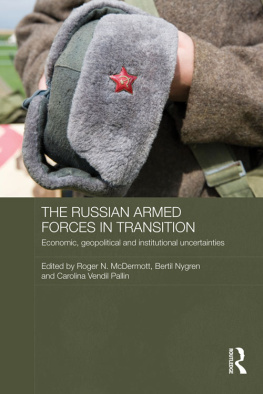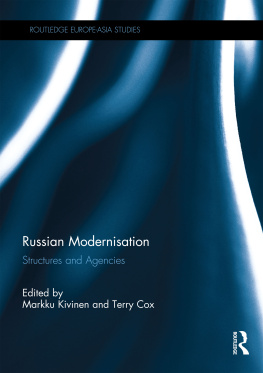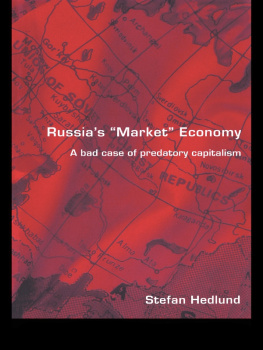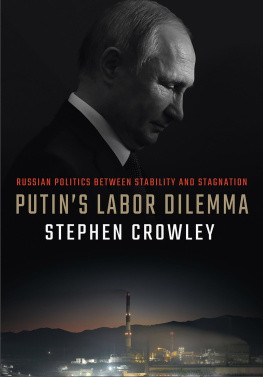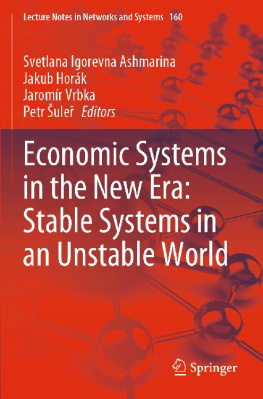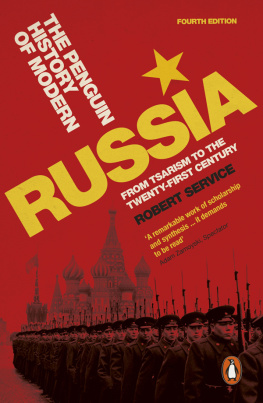ROUTLEDGE LIBRARY EDITIONS: THE RUSSIAN REVOLUTION
Volume 6
THE ECONOMIC DEVELOPMENT OF RUSSIA 19051914
THE ECONOMIC DEVELOPMENT OF RUSSIA 19051914
With Special Reference to Trade, Industry, and Finance
MARGARET MILLER
First published in 1926. Second edition published in 1967 by Frank Cass & Co. Ltd
by arrangement with P. S. King & Son Ltd.
This edition first published in 2017
by Routledge
2 Park Square, Milton Park, Abingdon, Oxon OX14 4RN
and by Routledge
711 Third Avenue, New York, NY 10017
Routledge is an imprint of the Taylor & Francis Group, an informa business
1926, 1967 Margaret S. Miller
All rights reserved. No part of this book may be reprinted or reproduced or utilised in any form or by any electronic, mechanical, or other means, now known or hereafter invented, including photocopying and recording, or in any information storage or retrieval system, without permission in writing from the publishers.
Trademark notice: Product or corporate names may be trademarks or registered trademarks, and are used only for identification and explanation without intent to infringe.
British Library Cataloguing in Publication Data
A catalogue record for this book is available from the British Library
ISBN: 978-1-138-21999-1 (Set)
ISBN: 978-1-315-31269-9 (Set) (ebk)
ISBN: 978-1-138-22831-3 (Volume 6) (hbk)
ISBN: 978-1-315-39286-8 (Volume 6) (ebk)
Publishers Note
The publisher has gone to great lengths to ensure the quality of this reprint but points out that some imperfections in the original copies may be apparent.
Disclaimer
The publisher has made every effort to trace copyright holders and would welcome correspondence from those they have been unable to trace.
Due to modern production methods, it has not been possible to reproduce the fold-out maps within the book. Please visit www.routledge.com to view them.
THE ECONOMIC DEVELOPMENT OF RUSSIA 19051914
WITH SPECIAL REFERENCE TO
TRADE, INDUSTRY, AND FINANCE
MARGARET MILLER
SECOND EDITION
Published by
FRANK CASS AND COMPANY LIMITED
67 Great Russell Street, London W.C.l
by arrangement with P. S. King & Son, Ltd.
| First edition | 1926 |
| Second edition | 1967 |
PREFACE TO THE FIRST EDITION
OF Russia it may truly be said that no country has inspired more profound or sustained interest, and no country has been less clearly understood by her neighbours. International understanding is never particularly easy of attainment. In the case of Russia, several factors combine to make especially difficultthe fundamental differences in historical and cultural development which divide her from Western Europe, the language barrier which comparatively few foreigners ever surmount, the geographical inaccessibility of many parts of her vast domains.
In consequence, Russia has always tended to loom somewhat mistily on the horizon of Western European thought, and to be presented to the popular imagination there under various grotesque disguises, the long-haired Anarchist of pre-war days giving place to the still more fearsome apparition of the fire-and-slaughter-breathing Bolshevist. Very little attention has been directed towards the careful study of the soil which nourished these exotic plants, in spite of the intense interest which they themselves aroused.
To present a study of Russias pre-war economic development may seem a round-about method of satisfying the prevailing interest in modern Russia. It is, however, based on the conviction that the story of Russia is a story of continuity, in the economic sphere at least; however profound may have been the cleavage in her political development introduced by the events of 1917. With minor modifications consequent upon post-revolution changes in frontiers, land policy, and so on, the economic problems confronting the Soviet regime remain essentially the same as those which the Tsarist Government had to face. It is, therefore, only possible to view the present situation in proper perspective through a study of the immediate past in which it has its roots : one result should be to show that Bolshevism is at least an entirely comprehensible, although perhaps not inevitable, outcome of Russias previous development.
The obvious omissions in the book, such as the absence of any reference to internal trade, or to the interesting development of the co-operative movement, the inadequate references to agriculture, must be ascribed simply to lack of time. Since so very little work has been done in this field, it is hoped that even an incomplete study may prove useful.
In the task of collecting material I have come under a debt of gratitude in many quarters. At the London School of Economics, I have to express my gratitude to Professor Lilian Knowles for her stimulating guidance of my work throughout, and to Professor A. J. Sargent for helpful criticism in its later stages. At the School of Slavonic Studies, London, I owe much to the sustained interest and encouragement of the Director, Sir Bernard Pares, and very much indeed to Baron A. Meyendorff, without whose guidance it would have been extremely difficult to handle the masses of material available in Russian sources.
For access afforded to valuable Russian material not available elsewhere, I have to thank Mr. A. M. Onou, previous Russian Consul-General in London, and also Sir M. de Rutkowski, who very generously placed his private library at my disposal : for useful material on the Finance side, I am indebted to the kindness of Mr. C. B. Crisp. The final shaping of the book owes much to the helpful criticism and advice of Professor J. S. Nicholson and Mr. A. S. Wade. For the preparation of maps I have to thank Miss D. Wilford of the London School of Economics.
My thanks are due to the Carnegie Trust for the Universities of Scotland for their assistance towards the publication of this book.
MARGARET MILLER.
LIVERPOOL,
December 1925.
INTRODUCTORY NOTE TO THE FIRST EDITION
THE widespread interest in modern Russia has been responsible for a flood of impressionist books and pamphlets, the majority of which do more honour to the imaginative powers of their authors than to their patience in unravelling the tangled skein of Russias economic and political life. It is to be sincerely hoped that Dr. Millers study of Russias Economic Development during the decade preceding the war, based as it is on years of detailed research, will prove to be a welcome relief from this type of literature.
A possible disadvantage of her treatment from one point of view is that it is based on estimates and statistics, which, while tolerably correct, make little appeal to the retributive imagination of the impressionist school of writers, who tend rather to proclaim sweeping generalizations. The counterbalancing advantages are, however, a sufficient justification. Here we have presented to us, in very small space, a great variety of important subjects, with some solid foundation in the statistical appendices at the end of each section, together with a comprehensive and lucid exposition of the main currents and tendencies which underlie the economic facts. As a result, the serious student of Russian affairs should be guided into useful channels of study, and the gifted impressionist should be provided with a somewhat more secure foundation for his general statements.



